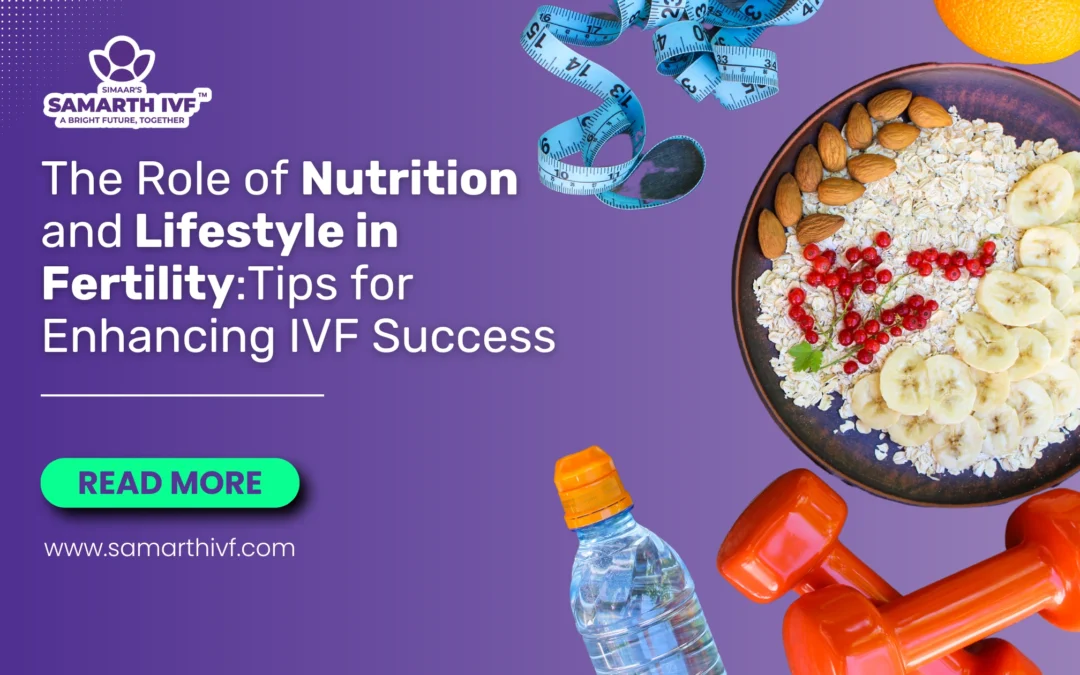Parenthood is a profound and emotional journey for many. However, not everyone can conceive naturally within a specific timeframe. Approximately one in every six couples faces difficulties in conceiving naturally, which can be attributed to various factors such as low sperm count, ovulation issues, chronic diseases, and other abnormalities. One significant contributing factor is inadequate nutrition.
Nutrition and lifestyle play crucial roles in enhancing fertility and increasing the chances of IVF success. This blog explores how dietary choices, physical activity, and overall lifestyle can impact fertility and offers practical tips for those undergoing IVF treatment.
The Impact of Nutrition on Fertility
Balanced Diet and Fertility
A well-balanced diet is essential for reproductive health. Nutrients like folic acid, vitamin D, iron, and omega-3 fatty acids are particularly important for fertility. According to a study published in the American Journal of Obstetrics and Gynecology, women who consume a Mediterranean diet, rich in vegetables, fruits, legumes, and whole grains, have a higher likelihood of successful conception compared to those with a Western diet high in processed foods and sugars.

Key Nutrients for Fertility
- Folic Acid: Crucial for DNA synthesis and repair, folic acid helps prevent neural tube defects in embryos. Women are advised to take 400-800 mcg of folic acid daily when trying to conceive.
- Vitamin D: Adequate levels of vitamin D are associated with improved fertility and higher IVF success rates. A study in the Journal of Clinical Endocrinology & Metabolism found that women with sufficient vitamin D levels were more likely to achieve clinical pregnancy following IVF.
- Iron: Iron deficiency can lead to anovulation and poor egg quality. Consuming iron-rich foods like lean meats, beans, and spinach, or taking supplements as recommended by a healthcare provider, is beneficial.
- Omega-3 Fatty Acids: These fatty acids support hormone regulation and reduce inflammation. A study in the Journal of Clinical Lipidology suggests that omega-3 supplementation can enhance female fertility and improve pregnancy outcomes.
Lifestyle Factors Affecting Fertility
Maintaining a Healthy Weight
Body weight has a profound impact on fertility. Both obesity and being underweight can disrupt hormonal balance and menstrual cycles. A study in Human Reproduction found that women with a BMI between 18.5 and 24.9 have the highest chances of conception and successful IVF outcomes. Men’s fertility is also affected by weight, with obesity linked to lower sperm quality.
Regular Physical Activity
Moderate exercise is beneficial for reproductive health. It helps maintain a healthy weight, reduces stress, and improves overall well-being. However, excessive exercise can be detrimental. According to research published in Fertility and Sterility, women engaging in high-intensity workouts may experience decreased fertility, while moderate exercise can enhance reproductive outcomes.
Stress Management
Stress can negatively impact fertility by disrupting hormonal balance and menstrual cycles. Techniques such as yoga, meditation, and mindfulness can significantly reduce stress levels. A study in the journal Fertility and Sterility highlighted that women who participated in a mind-body program for stress reduction had a higher pregnancy rate compared to those who did not.
Avoiding Harmful Substances
Substances like alcohol, tobacco, and recreational drugs can impair fertility in both men and women. The American Society for Reproductive Medicine recommends avoiding these substances to improve fertility and increase the chances of a successful IVF cycle.
Practical Tips for Enhancing IVF Success
- Adopt a Fertility-Friendly Diet: Incorporate a variety of fruits, vegetables, whole grains, lean proteins, and healthy fats into your diet. Limit intake of processed foods, sugars, and trans fats.
- Stay Hydrated: Drink plenty of water to support overall health and optimal body functions.
- Engage in Moderate Exercise: Aim for 30 minutes of moderate exercise most days of the week. Activities like walking, swimming, and yoga are excellent choices.
- Manage Stress: Practice relaxation techniques and ensure you get adequate rest. Consider joining a support group for individuals undergoing fertility treatments.
- Consult a Nutritionist: A nutritionist specializing in fertility can provide personalized dietary recommendations to support your IVF journey.
Optimizing nutrition and lifestyle is a powerful way to enhance fertility and increase the chances of IVF success. By adopting healthy dietary habits, maintaining a balanced weight, engaging in moderate exercise, managing stress, and avoiding harmful substances, individuals can significantly improve their reproductive health. At Samarth IVF, we are committed to supporting you through every step of your fertility journey with expert care and guidance.
Please note: It’s important to note that this blog is for informational purposes only and should not be taken as medical advice. If you have any concerns about your health, please consult a healthcare professional.
